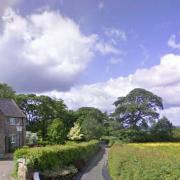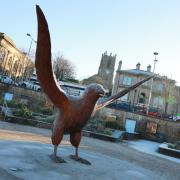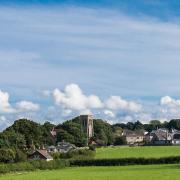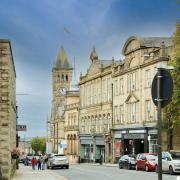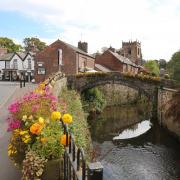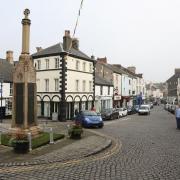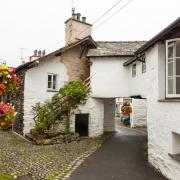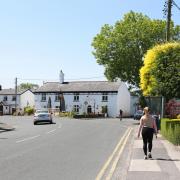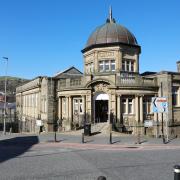There is more than meets the eye in this historic market town, as Edith Batchelor discovers
The word ‘Broughton’ is thought to derive from the Old English word for a stronghold - a fortress or an area occupied by a special group or distinguished by a special quality.
On visiting this town-disguised-as-a-village in South Lakeland, it quickly becomes apparent that Broughton-in-Furness really embodies all those meanings. Its metaphorical fortress exists because the A595 bypass causes many commuters to miss it completely. But then, those in the know (or who get lost and take the wrong turn) discover the small area where ‘special’ is a rather fitting description.
Knowing about Broughton, in the County Palatine of Lancashire, is like being a part of a privileged and very private club. That is, until Richard Parsons, a widely unknown author who lives and holds business in the town, was surprisingly named as the fifth best selling UK author of the last decade. His school revision guides mean he has become one of Broughton’s famous sons.
But there is much more to this community. A particularly good find is an organic, fair-trade and locally sourced bakery, with an aroma which is indescribably good. It is endorsed by a man who has popped in for his lunch. ‘This bakery is one of my favourite places to stop on the way to and from work,’ he says. ‘I have a few favourites dotted around the county but some, like this one, I want to keep a secret.’
The bakery is run by husband and wife team, Darren and Lara Napton, and holds the Good Food Award. When they bought the shop in 2006, it was Summer Bay to Morecambe Bay for Aussie Lara but a return home for local Darren. ‘The idea was always to get a business and here was perfect,’ he said. ‘For us it ticked all of the boxes.
‘There are not many small villages where you can get fantastic butchers, delis and four pubs, all in reach of so many good outdoor activities. It’s easy to get to plenty of cities and it’s not overly populated like other Lakes towns - it’s still got its original charm.’
There is something special about this place; it is classed as a town, but only has a population of about 900; it’s attractions include shops, a town hall, a doctor’s surgery, a primary school, a bank, an information centre, two traditional petrol stations, two churches, a tennis court and a stately home. Yet it still manages to be spacious.
Probably the most unique aspect of Broughton is the Square, dominated by the Obelisk - a monument which was erected in 1810 to mark the Jubilee of George III. When the sunshine comes out, so do the locals, hobbling over the cobbles to sit on the steps and soak up the atmosphere. The Square retains remnants of Broughton’s history as a prominent market town, particularly for the woollen and cattle trades. Although no longer active, the fish slabs used to sell the catch from the River Duddon. The stocks are also a reminder of punishment in bygone times.
One thing which you won’t be short of is a quality British pub. With four in the immediate area - The Manor, The Black Cock, The Kings Head and The High Cross - more local favourites in neighbouring Foxfield and Broughton Mills, and a popular annual beer festival, it’s no surprise to learn that it is in pubs where the sense of community lies.
The Manor Arms is a distinctive pub in The Square which, when you walk in, greets you with a multitude of awards for its real ale, including The Cumbria CAMRA (Campaign for Real Ale) Pub of the Year 2008. Family owned and run since 1988, The Manor draws real ale lovers from all over the country, some even proclaiming their love for the pub on internet forums.
Scott Varty was managing the pub for five years before taking over officially last year. ‘It’s good craic and we definitely have some interesting characters!’ Scott said. ‘We get just the right amount of visitors; just enough to keep it busy and interesting but not too many that we’re overrun. Once discovered people return time after time.’
Although visitors are warmly welcomed into the social scene, they are also central to a rumbling argument. Just mention ‘car park’ in Broughton and be prepared to hear moans and groans.
Although there is street parking throughout, finding a spot becomes more difficult in high season, with businesses complaining it costs them trade. Worries of the place becoming � a tourist trap and that a concrete creation will ruin the view are just some of the opposing views. However, car park proposals have been around for decades and it looks unlikely that a decision will be reached any time soon.
Like plenty of other rural towns and villages, Broughton’s Post Office faced the threat of closure, spurring a petition gathering signatures of most of the town, and it was spared the chop. ‘It would have taken the heart out of the village,’ said sub-postmaster, Diane Bath, ‘it would have killed it.’ A customer overhears and proclaims: ‘If it was under threat again we’d all be manning the barricades!’
That’s a prime example of just what it’s like in Broughton; you can’t go round to the shops without wanting to have a conversation. Much more customised than generic schmaltzy ‘community spirit’, Broughton’s version is all about ‘good craic’, washed down with a nice pint, or a hearty walk if you’re more energetic. Tommy Wilkinson, a long time Broughton resident, agrees, saying: ‘It’s a wonderful place to live and I wouldn’t change it for the world.’



